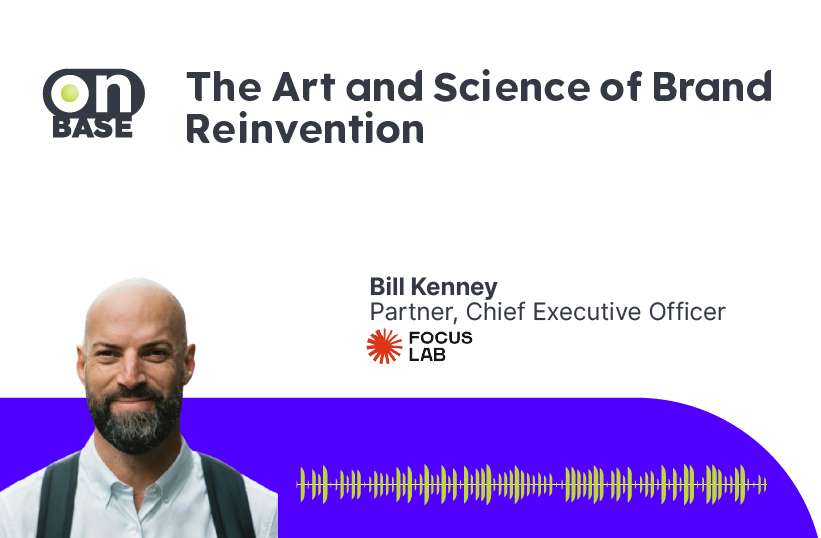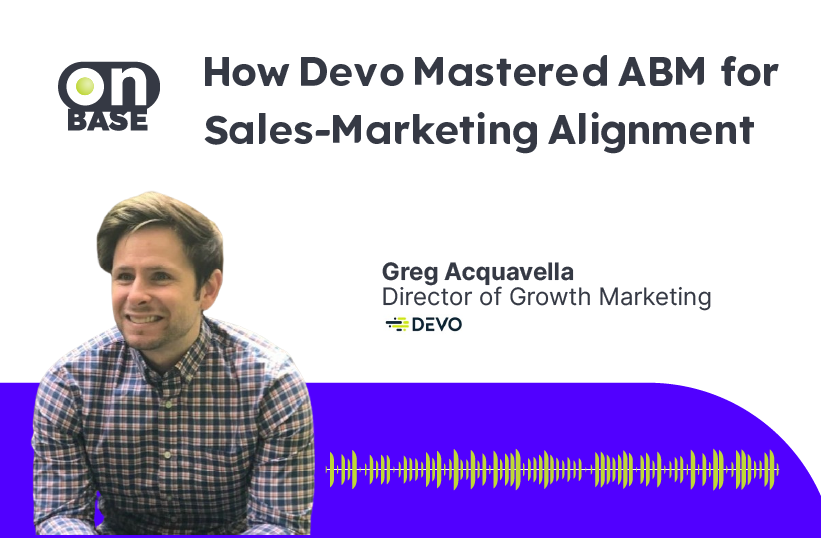
Gazing into the future: B2B Sales
Shownotes
In this episode of Sunny Side Up, host Chris Moody interviews Julia McClatchy, a partner at McKinsey’s Philadelphia office. Julia sheds light on the findings from McKinsey’s new B2B growth equation report, which surveyed 3,500 B2B decision makers across 12 markets globally. Shel discusses how sales are increasingly becoming digital and how sales operating models are becoming more hybrid. Additionally, she explores the importance of using analytics and personalization to engage customers more effectively and to ensure sales teams are upskilled and trained properly. They also discuss the challenge of retaining top talent in the market and how companies need to get creative with their training approaches along with the disconnect between sales reps and managers in terms of understanding the key skills for customer growth as well as strategies for creating successful transformations. This conversation highlights the importance of hybrid selling in today’s world as well as why it is expected to be the most dominant sales strategy by 2024. Join us as we learn best practices for building and designing world-class sales teams that emphasize collaboration, purpose, competitive compensation and incentive structures, lifelong learning, and a strong culture.
About the Guest
Julia is an Associate Partner in McKinsey’s Philadelphia office. She is a core member of the firm’s Wealth & Asset Management, and Marketing & Sales practices.
In her role, Julia serves life insurance, technology companies, and wealth & asset management firms on the future of work strategies, employee & client experience, sales capability development, agile sales & marketing transformations
Key Takeaways
- Sales is increasingly becoming digital and sales operating models are becoming more hybrid.
- Organizations are putting customers at the heart of their growth, breaking the channel mindset, creating a scalable sales engine, rethinking their people strategy, and making sure changes stick.
- Only 8% of B2B organizations are set up to deliver highly personalized marketing content that speaks to decision makers
- Talent is a pressing issue for all businesses, with sales turnover three times higher than other functions
- Sales reps need top-notch analytical and technical skills, pattern recognition, ability to understand customer business objectives, and ability to engage and influence executives
- Role of marketing and sales have changed, requiring integration and collaboration
- Hybrid selling has become a prominent trend, with 65% of companies now preferring remote and digital interactions across the entire journey.
- 40% of organizations have added hybrid sellers over the past couple of years, and it is expected to be the most dominant sales strategy by 2024.
- Hybrid selling enables broader and deeper real-time engagement, removes barriers for talented people who cannot travel, and fosters more diverse and inclusive organizations.
Quotes
“Putting the customer at the heart of growth is not only the right thing to do practically to build customer loyalty and trust, but it also is a concept that ties to people’s purpose at work”.
– Julia McClatchy
Highlights from the Episode
Julia, I know you are part of the team that released the industry-leading report on B2B trends, entitled The New B2B Growth Equation, which sets the stage for the remainder of the year. Can you quickly summarize some of the findings?
The New B2B Growth Equation report surveyed nearly 3,500 B2B decision makers across 12 markets globally and found that buyers are more savvy and demanding than ever, sales are becoming more digital and hybrid, the Great Attrition had an impact on talent in the sales and marketing industries, and many companies are putting customers at the heart of their growth, breaking the channel mindset, creating a scalable sales engine, rethinking their people strategy, and making sure their changes stick through intentional change management communication.
What trend was the biggest surprise to you?
One trend that was a surprise to Julia is the importance of putting the customer at the heart of growth. This trend is not always practiced, despite being widely agreed upon as the right thing to do. It is important for building customer loyalty and trust, as well as being tied to people’s sense of purpose at work. Julia finds this trend particularly interesting because it is both the right thing to do and personally motivating for her work.
Do you have any examples that come to mind of putting the customer at the heart of things?
According to Julia, only 8% of B2B organizations deliver highly personalized marketing content that speaks to decision-makers. She believes that putting the customer at the heart of things starts with listening to them and asking questions about how and when they want to be engaged, what content resonates with them, and their communication preferences. By doing this, companies can show that they care and are curious, and it can open up better conversations and inform how they behave and interact with their customers going forward.
What have you observed in terms of how sales teams are adapting to trends and have you seen any best practices or learnings you want to share on the subject?
Julia has observed that sales teams at outperforming organizations have been using analytics and personalization to better predict potential customers and their pain points and to engage with customers. Outperformers are also more likely to apply analytics at a granular level and to use non-traditional sources of insight in addition to past purchasing history to personalize their approach. These practices have been found to help sales teams make more informed decisions and engage more effectively with customers.
What are some strategies for training and upskilling teams in the face of rapid change and increasing market competition, particularly regarding retaining talent?
To retain top talent and respond to rapid changes and increasing market competition, many sales executives are prioritizing the re-skilling of their teams. This is because sales teams with skilled talent can achieve four to five times higher market growth. Today, being a top sales rep requires a range of skills beyond just selling a product, including analytical and technical skills, pattern recognition, and the ability to engage and influence executives across different channels. One strategy for training and upskilling teams is to use analytics to identify areas for improvement and create personalized training programs that focus on key skills, such as pipeline management, prospecting, and product knowledge. Additionally, incorporating micro-learning moments and snackable content can help to make training more engaging and accessible for sales reps.
What are the opportunities to mix marketing and sales and how have you seen this blending of the traditional handoffs between the two departments play out in a customer-oriented way (COW) model?
Julia has observed that sales teams at outperforming organizations have been using analytics and personalization to better predict potential customers and their pain points and to engage with customers. Outperformers are also more likely to apply analytics at a granular level and to use non-traditional sources of insight in addition to past purchasing history to personalize their approach. These practices have been found to help sales teams make more informed decisions and engage more effectively with customers.
What is the impact of trust on team performance and how should sales organizations consider the changes in the world in building and designing world-class teams?
Hybrid selling, a strategy that combines in-person and remote interactions, has become increasingly popular in recent years due to the preference of over 65% of companies for remote and digital interactions across the entire journey. In response, around 40% of organizations have added hybrid sellers in the past couple of years. Hybrid selling is expected to be the dominant sales strategy by 2024 and offers several benefits, including the ability to be responsive to customer preferences, increased real-time engagement, and the ability to attract a more diverse and inclusive workforce by removing barriers such as the need for travel. Sales organizations should consider the adoption of hybrid selling to stay competitive and meet the changing needs of customers.
What do the best leaders do differently in developing and nurturing sales?
The best leaders in developing and nurturing sales ensure they have a competitive compensation and an incentive structure that reflects what their talent values. This may include shifting from short-term incentives to longer-term incentives and incorporating non-financial incentives such as cultural aspects that appeal to younger generations. These leaders also prioritize and celebrate lifelong learning and development opportunities, personalizing learning experiences to reflect adult learning principles. In addition, they invest in and maintain a strong culture that emphasizes collaboration and purpose.
What is Julia’s advice to teams as they look toward 2023 and beyond?
Julia advises teams to take time to recharge before thinking about 2023, to be a champion of the voice of their customers by bringing them in at all stages of product development and building loyalty, and to leverage analytics to make their Salesforce smarter by recognizing it as an enabler of spending time on things that matter and give greater joy. She also advises teams to lean into things they don’t know much about or have never done before and to remember that attitude is a little thing that makes a big difference.
Is there a book, blog, newsletter, website, or video that you would recommend to our listeners?
A book
- Cloud Cuckoo Land by Anthony Doerr
- All the Light We Cannot See by Anthony Doerr
- Invent and Wander by Jeff Bezos
Shout-outs
Jennifer Stanley — Partner at McKinsey & Company
Candace Lun Plotkin — Partner at McKinsey & Company
Maria Valdivieso de Uster — Partner at McKinsey & Company
Lisa Donchak — Associate Partner at McKinsey & Company

Sunny Side Up
B2B podcast for, Smarter GTM™



